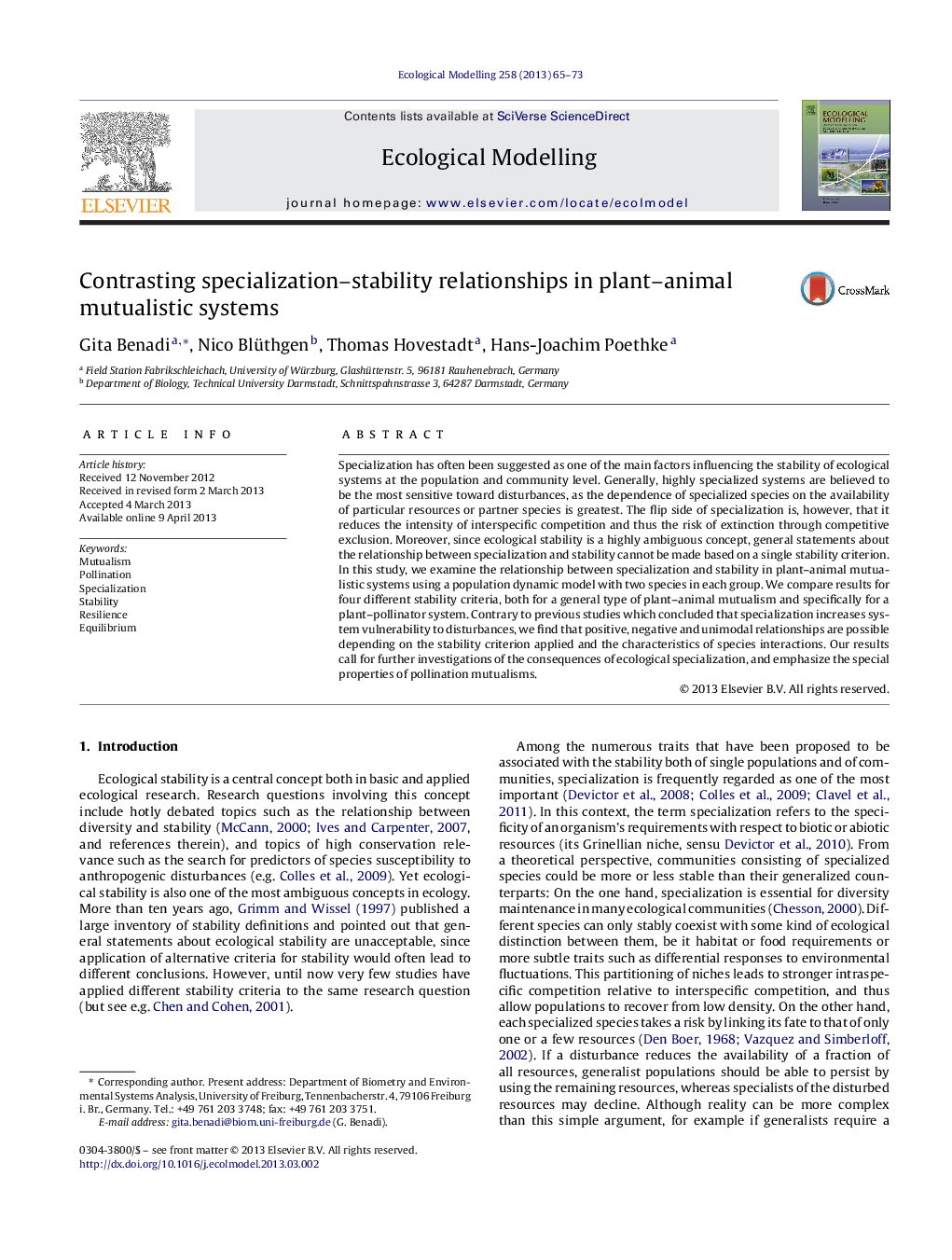| Article ID | Journal | Published Year | Pages | File Type |
|---|---|---|---|---|
| 4376105 | Ecological Modelling | 2013 | 9 Pages |
•We examine the specialization–stability relationship in plant–animal mutualisms.•Results for four different stability criteria are compared.•Positive, negative and unimodal relationships are possible.•Pollination mutualisms have special properties.
Specialization has often been suggested as one of the main factors influencing the stability of ecological systems at the population and community level. Generally, highly specialized systems are believed to be the most sensitive toward disturbances, as the dependence of specialized species on the availability of particular resources or partner species is greatest. The flip side of specialization is, however, that it reduces the intensity of interspecific competition and thus the risk of extinction through competitive exclusion. Moreover, since ecological stability is a highly ambiguous concept, general statements about the relationship between specialization and stability cannot be made based on a single stability criterion. In this study, we examine the relationship between specialization and stability in plant–animal mutualistic systems using a population dynamic model with two species in each group. We compare results for four different stability criteria, both for a general type of plant–animal mutualism and specifically for a plant–pollinator system. Contrary to previous studies which concluded that specialization increases system vulnerability to disturbances, we find that positive, negative and unimodal relationships are possible depending on the stability criterion applied and the characteristics of species interactions. Our results call for further investigations of the consequences of ecological specialization, and emphasize the special properties of pollination mutualisms.
